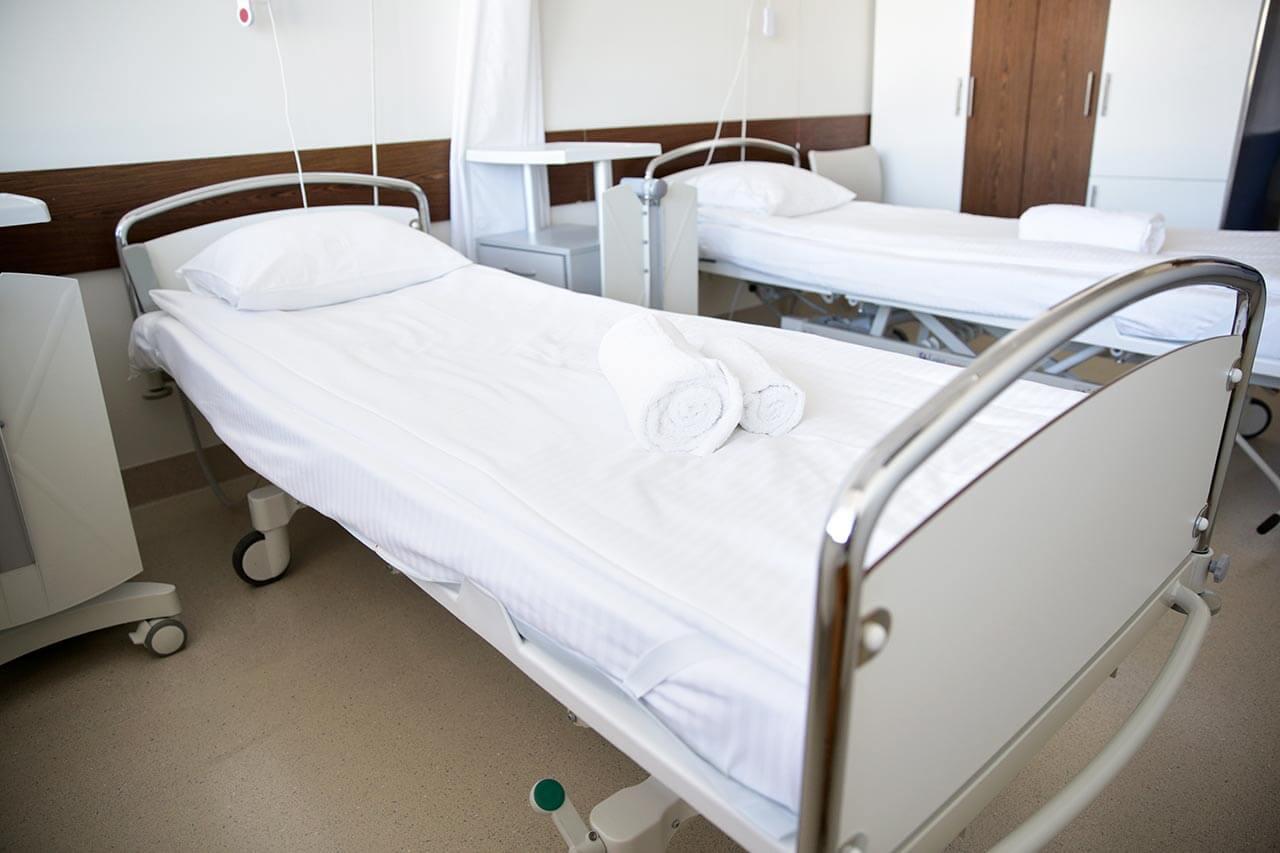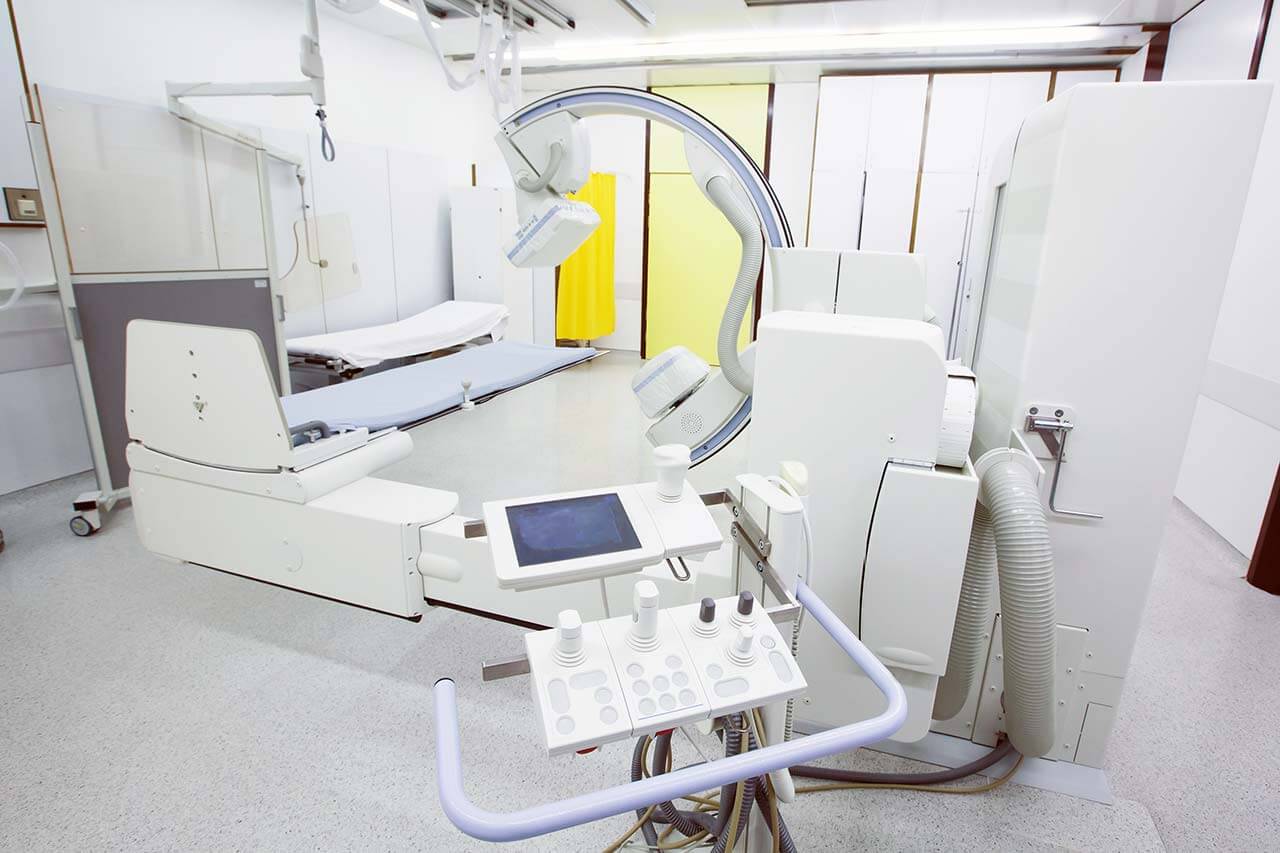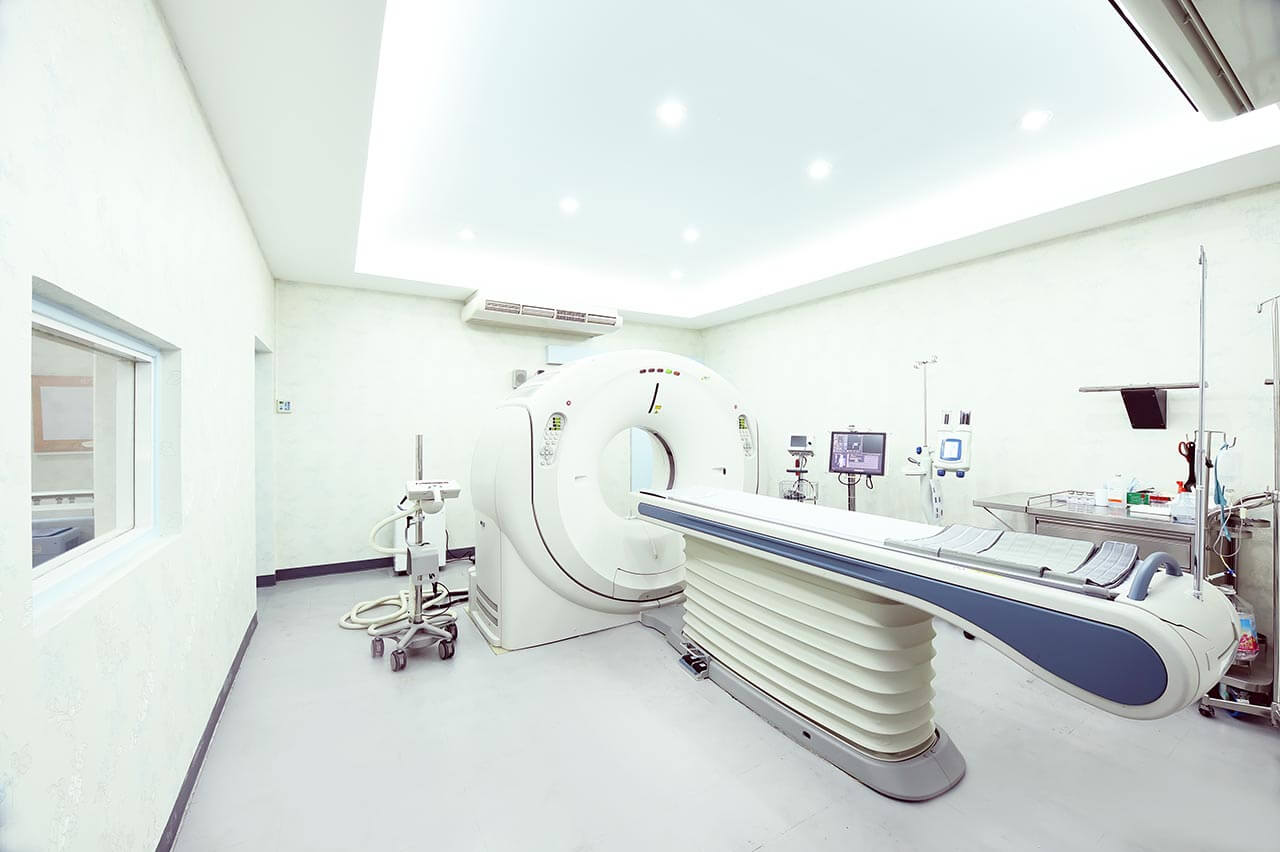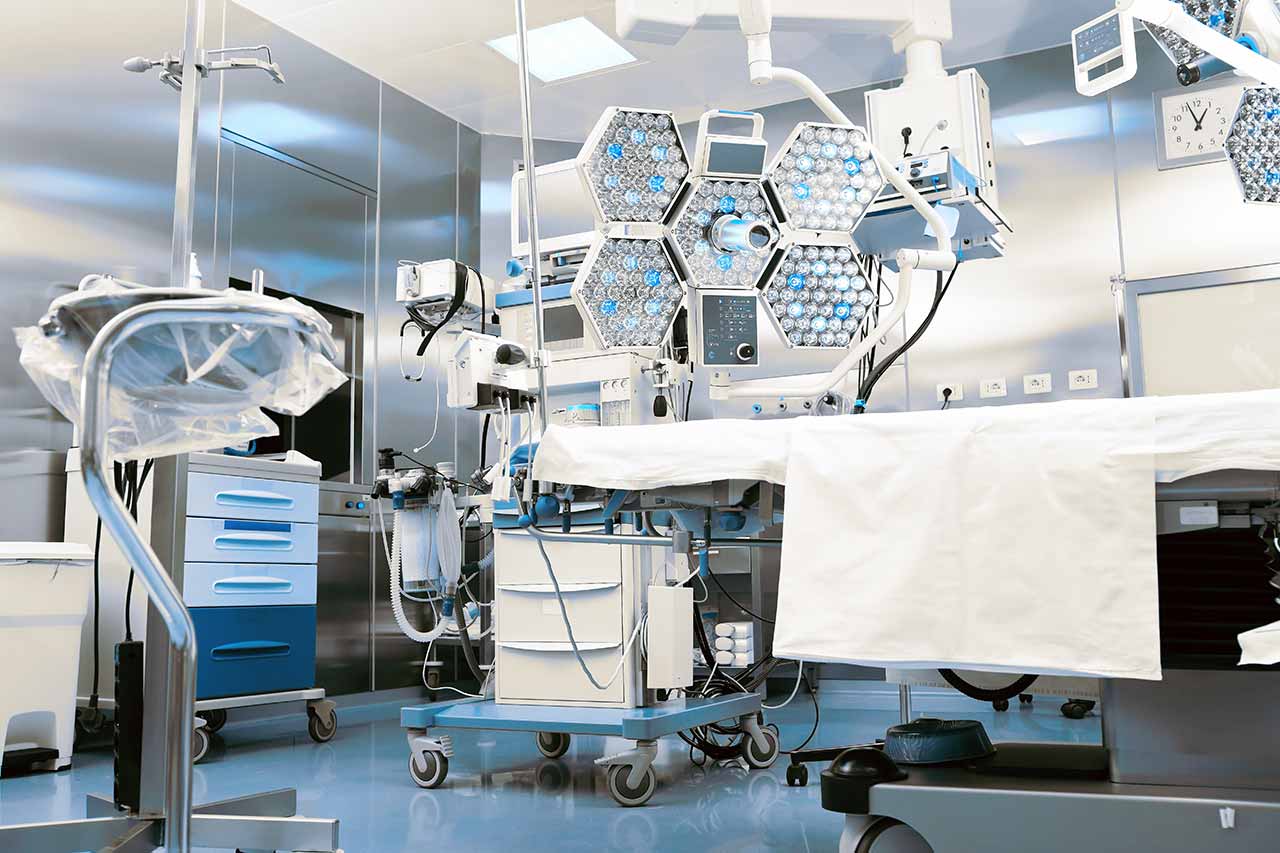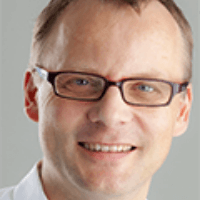
About the Department of Gastroenterology and Hepatology at University Hospital Essen
The Department of Gastroenterology and Hepatology at the University Hospital Essen offers the full range of diagnostic and therapeutic services for patients with diseases of the gastrointestinal tract and liver. Special attention is paid to the treatment of patients with chronic liver diseases, including the monitoring before and after transplantation, diagnostics and treatment of gastrointestinal and liver tumors, chronic inflammatory bowel diseases, and HIV infection. Also, all the modern endoscopic procedures are available in the department. In order to ensure the highest level of medical services, the department cooperates closely with the specialists from other departments of the hospital and the West German Center for Gastrointestinal Diseases. The Chief Physician of the department is Prof. Dr. med. Heiner Wedemeyer.
The central Endoscopy Unit conducts all the diagnostic and interventional functional diagnostic and therapeutic procedures, including such interventions as cholangioscopy, minilaparoscopy, duplex and contrast-enhanced ultrasound scanning and ultrasound-guided fine needle biopsy. The department's specialists perform more than 10,000 endoscopic examinations every year.
A number of prestigious certificates testifies to the outstanding quality of medical care in the department, for example, the certification of the German Cancer Society, DIN EN ISO 9001 certification and others.
The service range of the department includes:
- Endoscopic diagnostic and therapeutic procedures
- Esophagogastroduodenoscopy (gastroscopy) and colonoscopy
- High definition video endoscopy
- ZOOM endoscopy
- Chromoendoscopy
- Endoscopic hemostasis techniques (injections, use of clips)
- Polyp removal and mucosectomy
- Stent implantation into the esophagus, small and large intestine
- Bougienage and balloon dilatation of stenoses
- Endoscopic treatment of Barrett's esophagus and early stage cancer
- Endoscopic therapy of diverticles
- Ligature (for example, in diseases of the esophagus, hemorrhoids)
- Percutaneous endoscopic gastrostomy and percutaneous endoscopic jejunostomy
- Endoscopic imaging of the bile ducts and pancreatic ducts (endoscopic retrograde cholangiopancreatography)
- Removal of bile duct stones
- Electrohydraulic lithotripsy
- Laser lithotripsy
- Bougienage, balloon dilatation and stent implantation in benign and malignant stenoses of the bile ducts and pancreatic ducts
- Cholangioscopy
- Photodynamic therapy in bile duct cancer
- Intraductal ultrasonography
- Percutaneous transhepatic drainage of the gallbladder, in the case when it is impossible to provide endoscopic access to the bile ducts
- Mini-laparoscopy
- Capsule endoscopy
- Contrast-enhanced sonography and interventional sonography (puncture, drainage and sclerotherapy of the liver cysts)
- Endosonography
- Esophagogastroduodenoscopy (gastroscopy) and colonoscopy
- Functional diagnostics
- Esophageal diseases (achalasia, reflux disease, etc.)
- Esophageal manometry
- Long-term esophageal pH monitoring
- Barium swallow test
- Stomach diseases (gastroparesis, infection with Helicobacter pylori, etc.)
- Gastric emptying scintigraphy
- 13C-urea breath test
- Small intestine diseases (lactose intolerance, malabsorption, etc.)
- Lactulose hydrogen breath test
- Fructose hydrogen breath test
- Glucose hydrogen breath test
- Xylose hydrogen breath test
- Pancreas function tests
- Colon diseases (irritable bowel syndrome, fecal incontinence, etc.)
- Hinton test (in collaboration with the Department of Radiology)
- Defecography (in collaboration with the Department of Radiology)
- Functional MRI (in collaboration with the Department of Radiology)
- Esophageal diseases (achalasia, reflux disease, etc.)
- Other diagnostic and therapeutic options
Curriculum vitae
Since February 2018, Heiner Wedemeyer is the Professor and Chairmen of the Department of Gastroenterology and Hepatology at the University Hospital Essen.
He received his Medical Degree at the University of Göttingen in 1996 and subsequently started his training in Internal Medicine at the Hannover Medical School in Germany. From 1998 to 2000, he was a Research Fellow in Immunology at the Section for Liver Diseases, National Institutes of Health, Bethesda, USA. Since 2001, he completed his training in Internal Medicine and Gastroenterology at the Hannover Medical School, where he became the Professor of Medicine (2011).
Prof. Wedemeyer has been involved in the scientific coordination of the German Network of Competence on Viral Hepatitis (Hep-Net) and the German Liver Foundation for more than 15 years. Currently, he serves as the Managing Director of the German Hepatitis C-Registry. Heiner Wedemeyer is Member of several scientific organizations and was Secretary General of the European Association for the Study of the Liver (from 2009 to 2011).
Prof. Wedemeyer has a long-term research interest in liver diseases with a main focus on viral hepatitis, liver transplantation and hepatocellular carcinoma. He has been a principal investigator in numerous clinical trials, focusing on antiviral therapy and immunotherapy of viral hepatitis B, C, D and E. He has authored over 325 original articles; his current Hirsch-Index is 80 (Google scholar; January 2018) and his work has been quoted more than 28,000 times.
Heiner Wedemeyer has received numerous awards, including the Hans Popper Award of the International Association for the Study of the Liver (2002), the Innovation Award of the German Medical Faculties (2011) and the Rudolph Schoen Award (2011). His research has been funded by the German Research Foundation, the German Ministry of Research and Education, the European Union, the European Association for the Study of the Liver and the Bill and Melinda Gates Foundation.
Photo of the doctor: (c) Universitätsklinikum Essen
